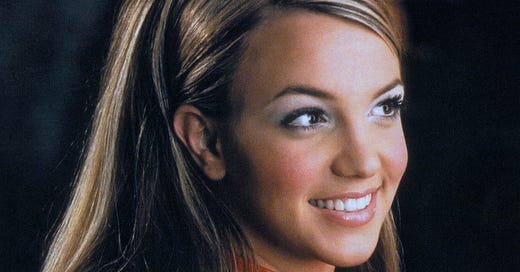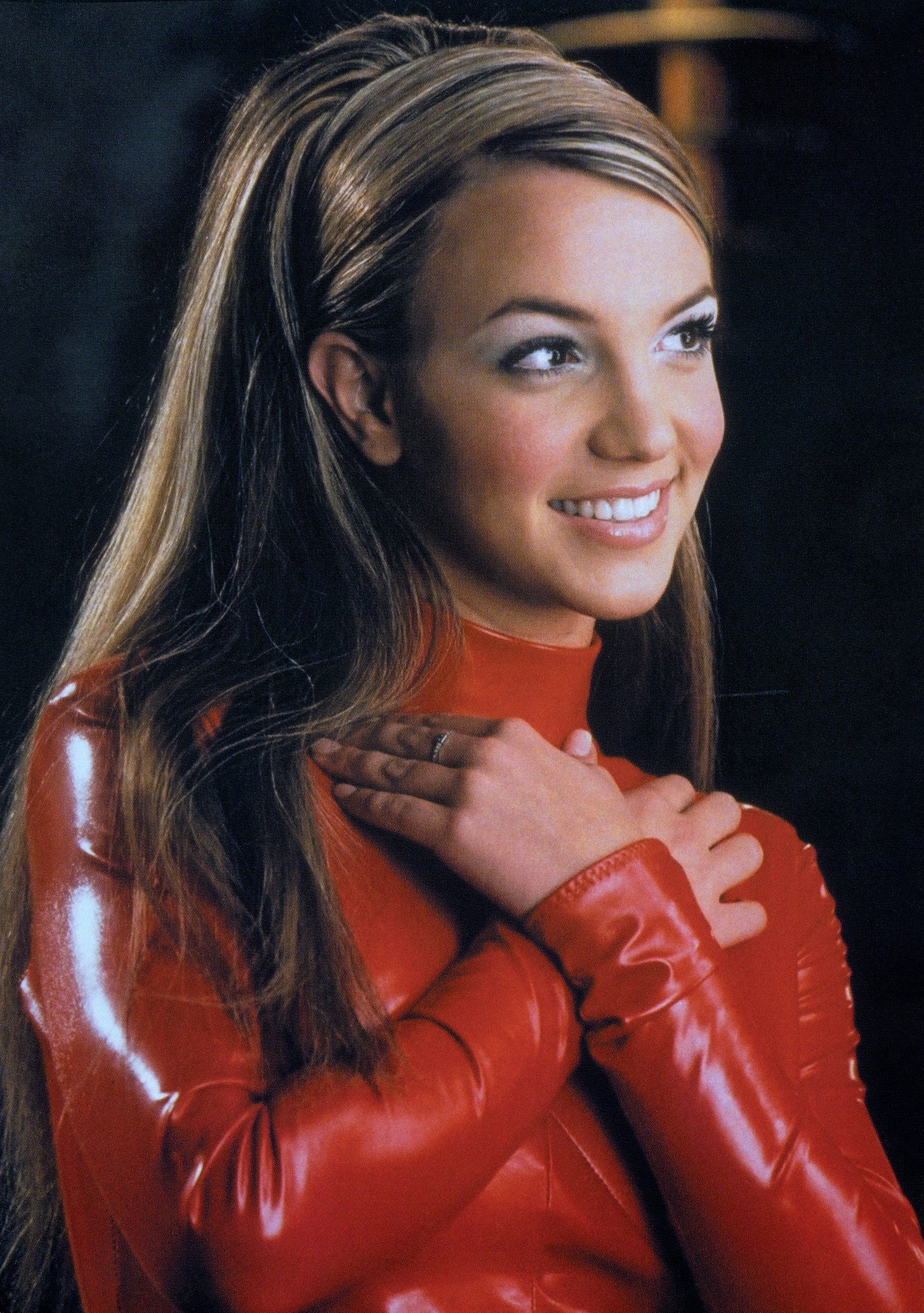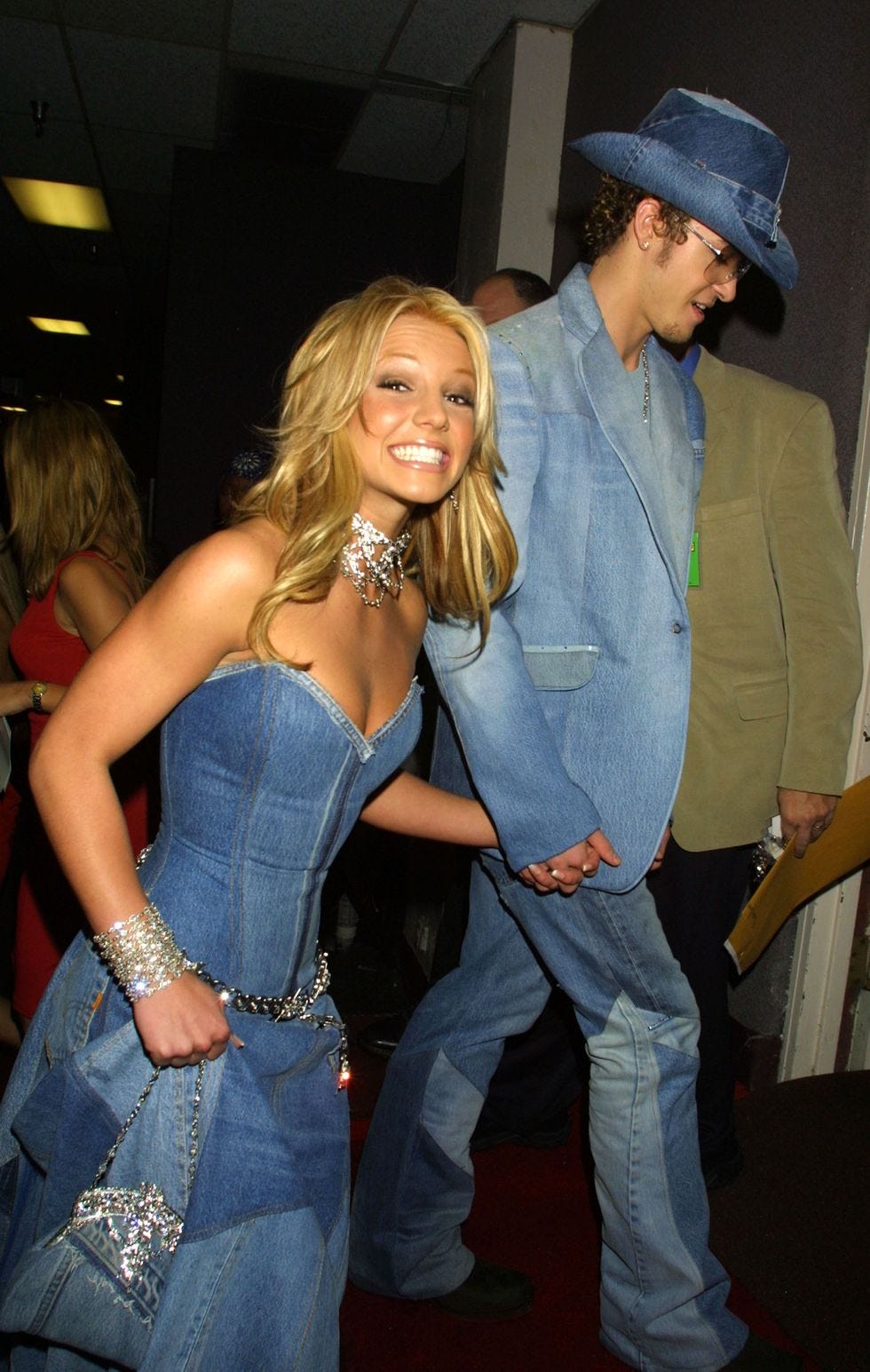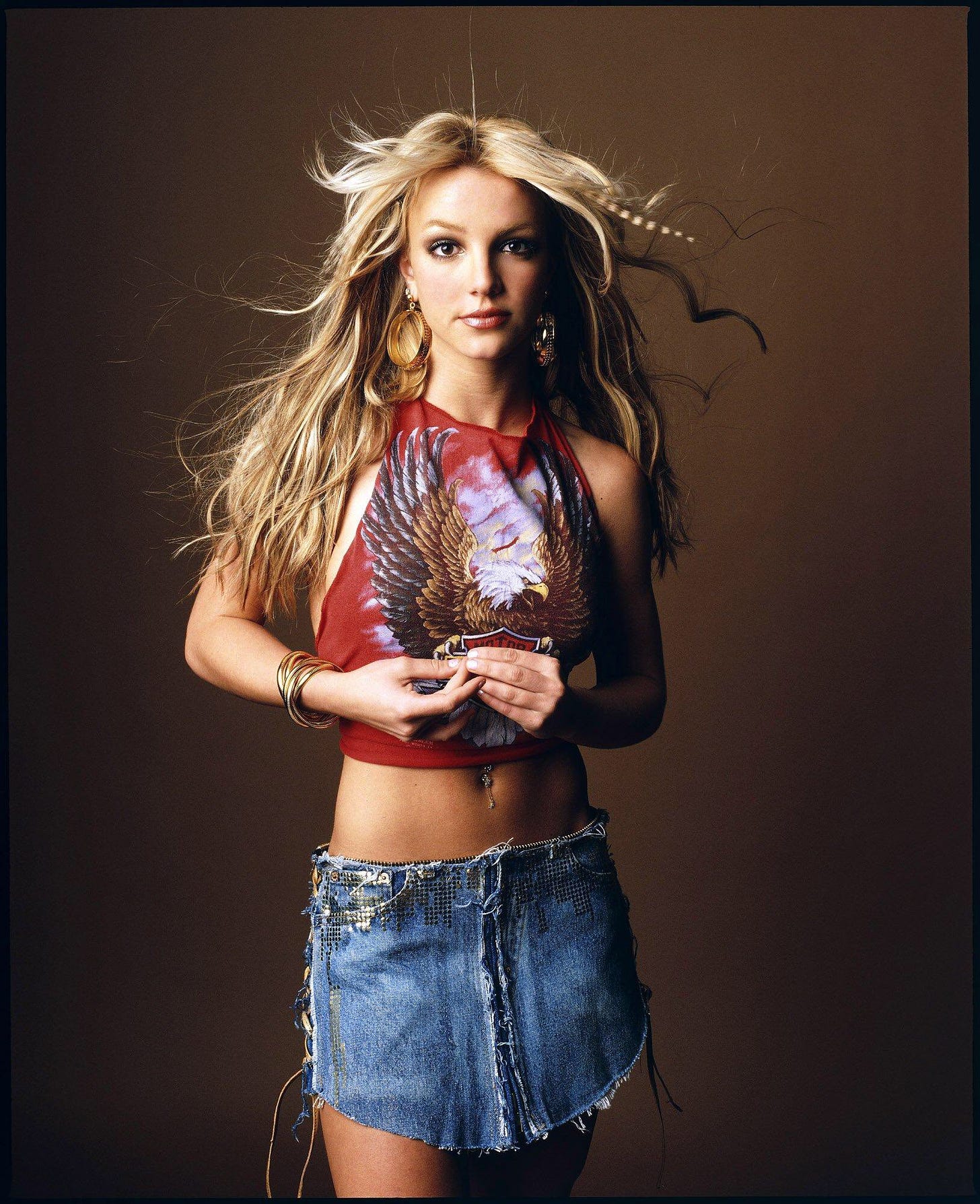“I had a lot of therapy to get this done, so you guys better like it” — Britney talking about her memoir (and also me talking about this blog post).
I have heard that I could sing before I could talk. At least that’s what my Mum would tell people. I don’t really know how that would work, but it would make for a great anecdote in my future documentary, when they interview my Mum and everyone from my hometown, about my humble beginnings. From a young age, I sang in the school choir, and was obsessed with The Sound of Music. My parents were supportive, and found a singing teacher nearby who taught from home.
The teacher’s home felt like a time capsule. It had floral drapes, delicate antiques, and an old black and white TV. It smelled of rose petals, peaches and nectarines. There was a comfort I felt when I was in her home — it was like time had stopped still and I was safe there. The teacher was very old, and surprisingly tough. I once had a joint lesson with a friend. The teacher asked her “How many times do you practise a week? 2-3 times?”. “Yeah 2-3 times” my friend replied. “Well, that’s not enough!” The teacher snapped back. She tricked her, I thought. She would teach from a small room, with a grand piano as the centrepiece. While following her sheet music, she would reprimand me for my pronunciation of the word spaghetti. “It’s SPAghetti, not sketti” she told me. (I was an 7 year old Eliza Doolittle from Western Sydney).
I had grown tired of singing No One Like You by John Denver and The Muppets — that song was sweet and all, but it was for babies. I had already mastered a song about an “organ grinder’s friendly little monkey on a string” (those were real lyrics to a song my teacher made me learn that I cannot seem to find online). Then, one sunny Saturday morning, I had returned home from singing lessons, to my siblings watching Video Hits in the living room. I remember it like it was yesterday — the music video for Britney Spears’ Oops!…I Did It Again was on. Britney’s red latex jumpsuit, long straightened hair and frosted eye makeup awakened something in me. She was confident and had a twinkle in her eye — the way she signalled to grab the camera when singing “I’m not that innocent” forever changed me.
“Kayla wants to sing pop songs” my Mum said to my Dad. I never saw that teacher ever again.
I continued to follow Britney’s career, and her songs often were the backdrop to my childhood and coming of age. I worked at an ice cream parlour part time while in high school. Over one festive break, my co-worker and I listened to Piece of Me on repeat for our whole shift, while we scooped ice cream cones and sauced hot dogs, stopping only for dance breaks. Even as I grew up, and my taste evolved, I always had a place for Britney.
I was particularly drawn to her Britney album, which included tracks I’m Not a Girl, Not Yet a Woman and Overprotected — with lyrics like “I need to make mistakes just to learn who I am, and I don't wanna be so damn protected” there were signs even back then, that Britney was feeling suffocated by fame, and struggling to be her own person. I feel like a lot of the younger generation only know Britney from the Free Britney movement, and her weird Instagram videos. I wish people celebrated her contributions to the music industry more, and recognised the impact she had on the millennial generation. I was watching YouTube videos of Britney’s old live performances in preparation for this post — she truly was a once in a generation talent: her dancing, stage presence, the fire in her eyes. Britney would be surrounded by lights, backup dancers and special effects, but your eyes never wandered from her. She was a star.
I read The Woman in Me within 3 hours. The memoir read more like a series of journal entries — like a friend sitting at the end of your bed, opening up to you about all the things they’ve been holding back. It clearly reads in Britney’s voice, and as she opens up about her failed relationships, the relentless paparazzi, and her toxic family dynamic, you can clearly understand her perspective, and reasons behind her decisions. I wouldn’t say it was particularly well-written, but you will finish the book wondering: how they hell did she do it? You only feel sad for her. Her family failed her, and she was taken advantage by everyone who was meant to protect her.
It starts by sharing about her early life in Kentwood, Louisiana. It was pretty easy to see how her growing up in poverty, with an alcoholic father and submissive mother, had an effect on her. I enjoyed this section of the memoir the most because of the moments of simplicity and freedom Britney described. I could feel a sense of yearning in her words, for that childlike innocence that she feels far away from now. Hearing her talk about her love of singing, and how it brought her peace as a child, was particularly heartwarming. It was apparent, even early on in the book, how she was conditioned to please people from a young age — growing up in the South meant respecting her elders, and never standing up to them. Britney may have a song about being Overprotected, but she was never truly protected, even in childhood.
One thing that was abundantly clear is that Britney is burned out from the entertainment industry and years of being the scapegoat — for her family, the media, and the parents who believed that Britney should be responsible for raising their kids. She writes a lot about how she struggled to find herself as a woman, and how when she was in a painful transitional period, she would often retreat developmentally. In many ways, she grew up prematurely (being the mediator for her parents arguments, supporting her family financially, drinking alcohol from age 13) but at the same time, she was far too young to navigate the world of fame on her own. Growing up in survival mode meant Britney didn’t have the opportunity to develop a core sense of self, causing her to dissociate or adopt a character instead.
“I was a little girl with big dreams. I wanted to be a star like Madonna, Dolly Parton, or Whitney Houston. I had simpler dreams, too, dreams that seemed harder to achieve and that felt too ambitious to say out loud: I want my dad to stop drinking. I want my mom to stop yelling. I want everyone to be okay.”
Although Britney talks about her father’s abuse, I felt she gave him a lot of grace, all things considered. She described his own childhood, and the abuse he suffered at the hands on his own father. While it is no excuse for how he treated Britney, it provided context to his monstrous behaviour and demonstrated Britney’s awareness of her family’s generational trauma. It would have taken a lot of strength to give him that grace. It was also hard not to see the parallels between Britney and her grandmother, who also suffered from mental health issues and was forced to take lithium.
“The saddest part to me was that what I always wanted was a dad who would love me as I was — somebody who would say, I just love you. You could do anything right now. I’d still love you with unconditional love.”
Britney wrote about her rise to fame, and how happy she was in the early stages of her career. “That’s probably the moment in my life when I had the most passion for music. I was unknown, and had nothing to lose if I messed up” Britney wrote about shooting the …Baby One More Time music video, performing at shopping malls, and seeing her success unfold in real time. It seemed apparent that her confidence and mental health started to waver after her abortion and subsequent breakup with Justin Timberlake — all compounded with excessive media coverage, having no one in her life she could talk to, and Justin’s smear campaign to promote his album Justified. I think it was particularly difficult for Britney to navigate because she had grown attached to Justin’s family, noting that “Justin’s family had been the only real, loving family I had.” I don’t think Justin is a bad person — his behaviour was merely a symptom of the patriarchal society we live in, further amplified and encouraged by him being an international superstar. The difference between them though, was that Justin was given the space to grow and evolve, and Britney wasn’t. Britney was merely collateral damage.
“As a child, I’d always had a guilty conscience, a lot of shame, a sense that my family thought I was just plain bad. The sadness and the loneliness that would hit me felt like it was my fault somehow, like I deserved unhappiness and bad luck.”
Britney has had to learn the hard way what money does to people — she financially supported her family, buying them a home, and giving her sister the affluent childhood that she never had. Her family seemed to worry when Britney started finding her own voice, and stepping into her power — so they put her in her place by beating down her confidence through emotional abuse, and later through the conservatorship. There were several times when reading the book that I wanted to scream: Britney! Can’t you see what they’re doing!? But she had been gaslit, emotionally abused, and accepting breadcrumbs instead of the love she deserved for years, so I only have grace, empathy and respect for her.
“What do I have over you guys? I wondered. Why would someone else be so huge a threat? Perhaps it’s worth mentioning that, by this point, I was supporting them financially.”
I think her complicated upbringing, and the stress of fame, is what led her to seek unconditional love from unlikely suitors. Enter: Kevin Federline. Britney wrote how she was “craving some lightness and joy in my life” prior to meeting Kevin. She describes feeling like she “could escape everything that was hard in my life” after they met, and how their relationship allowed her to experience a feeling of intimacy she had never experienced before. Britney shared how he would hold her in the swimming pool for hours and wouldn’t let go until she wanted him to. Britney and Kevin’s relationship began to fall apart with Kevin pursuing his rap career, and him ignoring her, while she took care of their son, and was pregnant with another. “He really thought he was a rapper now. Bless his heart — because he did take it so seriously” Britney wrote. Arguably the best quote from the whole book, Britney goes on to talk about how fame changed Kevin, and the more he was exposed to it, the less she and their kids saw him. He later turned on Britney entirely, demanding full-custody, spousal support, and withheld their children unless she paid his legal bills.
“Kevin was just so enthralled with the fame and the power. Again and again in my life I’ve seen fame and money ruin people, and I saw it happen with Kevin in slow motion.”
Between postpartum depression, losing custody of her children, and shaving her head, Britney had reached her lowest point. The more vulnerable she became, the more people took advantage of her. A driving force of strength for her was her children — wanting to see them, wanting to do whatever it took to have them in her life.
Britney’s father, an alcoholic, someone who’d declared bankruptcy, who had failed in business, and terrified Britney as a child, was the person in charge of her and her estate. “I just want to let you know I call the shots. You sit right there in that chair and I’ll tell you what goes on. I’m Britney Spears now” he told her.
“Conservatorships, also called guardianships, are usually reserved for people with no mental capacity, people who can’t do anything for themselves. But I was highly functional. I’d just don’t the best album of my career. I was making a lot of people a lot of money, especially my father.”
Many people benefited from keeping Britney in her conservatorship, and were determined to keep it in order, no matter how inhumane it was. Britney was apparently incapable of running her own life, but she was able to record multiple albums, have a Vegas residency, travel internationally for The Circus Tour, and be a judge on The X-Factor, all during her 13 year conservatorship. Britney had no agency over her body (she wasn’t allowed to take out her IUD), was not allowed to drive a car, and was forced to do projects against her will, with no creative control. She had to follow an intense schedule of therapy, AA meetings and work commitments. Any man she wanted to date had to have a background check, take a blood test, sign an NDA, and were given Britney’s sexual and medical history, and other personal information, ahead of their first date. Britney was told what to eat, forced to take lithium, and given a small allowance each week, while her father, and many others, heavily benefited from the conservatorship, becoming multi-millionaires. Britney doesn’t shy away from acknowledging her mental health struggles, and how conservatorships can be helpful for a time, but one must consider that if she was so incapable of running her own life, why was she expected to continue working in the that way she was?
“In that moment, I made peace with my family — by which I mean that I realised I never wanted to see them again, and I was at peace with that.”
“There came a point when my little heart said, I’m not going to stand for this” Britney wrote about slowly returning to herself, and deciding she couldn’t take the conservatorship any longer. Building on the confidence she gained towards the end of her Vegas residency, Britney found strength and inspiration from the women she met in AA, the Free Britney movement, and called 911 and reported her father for conservatorship abuse. She was able to choose her own lawyer, Matthew Rosengart, and within months, Britney was free of the conservatorship. I think it was telling that as soon as Britney was able to obtain her own lawyer, things unfolded very quickly in her favour.
The book ends on a hopeful note, with Britney showing grace for her sister, and expressing gratitude to her fans. “I’ve started to experience the riches of being an adult woman for the first time in many years. I’ve been underwater for so long, only rarely swimming up to the surface to gasp for air and a little food” Britney writes.
“I don’t think she realises she’s Britney Fucking Spears” I texted a friend after finishing the book. It glossed over her achievements and accolades, and zeroed in on the conservatorship. I know that’s what most people wanted to read about, but as a longtime fan, I wanted to hear more about her glory days, creative process, and her life today. More importantly, I’m just glad that we are moving forward as a society, and are having meaningful dialogue around mental health. I’m also glad Britney was able to share her story, on her own terms.
There’s still so much mystery around Britney — she did no press for The Woman in Me, the book wasn’t updated to address her recent divorce to Sam Asghari, and her Instagram posts are as confusing as ever. Despite finishing the book with an immense amount of admiration for Britney, I’m still unsure if she is okay. I truly hope she finds the peace, support, and unconditional love that she no doubt deserves. Most of all, I hope her sons read this book.
Thank you for reading. I’m so happy you’re here. Consider subscribing to my newsletter if you enjoyed reading this.








